Members

Submit your Bio
As part of the Latino Faculty Association's efforts to increase visibility of Latino faculty on campus, the LFA will include photos and bios of full-time faculty on the website. Please fill out the form below to share your information with the LFA and to be featured on the new site. If you have any questions, please contact lfa@ucmail.uc.edu.
Join the Faculty Listserv
Want to contact the other Latino faculty on campus? Join the LFA Listserv. To join, send an email message with the subject line and message body as “Subscribe” followed by "UC-LFA" and your name. See the following example:
To: UC-LFA@listserv.uc.edu
Subject: Subscribe UC-LFA Jane Doe
Body: Subscribe UC-LFA Jane Doe
User not found User not found
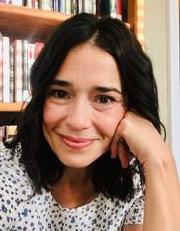
Brianna N. Leavitt-Alcántara
Associate Professor, A&S History
ARTSCI
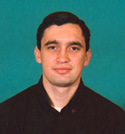
C. J. Bolech
Professor, A&S Physics
427 Geology-Physics Building
Strongly Correlated Quantum Systems (SCQS): This includes many-body and quantum-field theories, quantum fluids, integrable systems, quantum information and tensor networks, non-equilibrium transport, mesoscopic systems, ultracold atomic gases and optical lattices, unconventional superconductivity, strongly correlated electrons (e.g., quantum impurities and heavy fermions).
Main interests
Prof. Bolech is an applied mathematical physicist working mainly on the domains of theoretical Atomic-Molecular-Optical and Condensed-Matter&Materials physics (TAMOP and CMMT, respectively). From a technical perspective, his present TAMOP focus is on the use of generalized coherent states, tensor networks and non-linear optimization; while on the CMMT side he is currently focused on bosonization, renormalization and entanglement. His main interest is on SCQS. Strong correlations are one of the main theoretical (viz. computational and mathematical) challenges of current frontier problems in many areas of physics; ranging from condensed-matter to atomic, nuclear and particle physics. For example, strong nonlinear behaviours can be found in numerous systems such as heavy fermions, high-temperature superconductors, organic conductors, or quantum wires and dots (to the study of all of which he has contributed). Bolech's work combines the use and development of different computational and analytic non-perturbative approaches. These are applied to problems like the realization of exotic superconducting states of matter in optical lattices, the interplay of mixed valence and multi-channel Kondo physics in heavy fermions and quantum dots, the quantum tunneling of particles in correlated mesoscopic systems, the dynamics of vortices in quantum condensates, or the sudden expansion of interacting atomic gases.
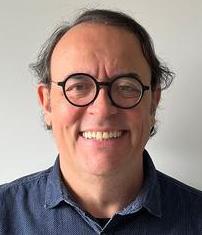
Carlos M Gutiérrez
Professor of Spanish & Graduate Director, A&S Romance & Arabic Languages & Literat
726B52 CLIFTCT
http://cincinnatiartmuseum.org/art/exhibitions/online-exhibitions/frida/
https://artsandculture.google.com/exhibit/AQJSeywc0iFIIw
I work on a book about Cervantes and direct the Madrid Summer Program.
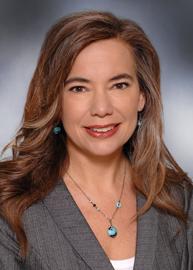
Farrah Jacquez
Associate Professor, A&S Psychology
3216 CLIFTCT
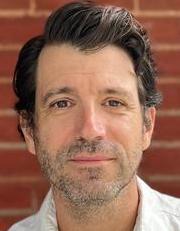
Isaac Peter Campos
Professor, A&S History
320D ARTSCI
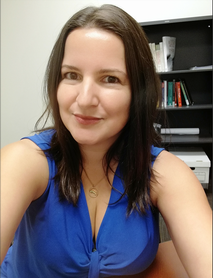
Leila Rodriguez
Senior Research Associate, A&S Anthro
450 Braunstein Hall
Senior Associate Researcher
I am former Professor of Anthropology who maintains an affiliate Senior Associate Researcher position. Broadly, my research questions how societies manage cultural diversity. One line of research studies the local-level integration of migrants and the sociocultural construction of (il)legality. The second line of research investigates how judicial systems in the U.S. and Latin America use culture as evidence in legal conflicts involving migrants and asylum-seekers.
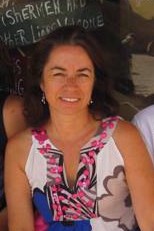
Ligia C Gomez.
Assistant Professor Educator , A&S Rom L&L Emeriti
Trained as a psychologist and with a degree in fine arts from Colombia, South America, Ligia worked for six years in a health care as an educator and health advocate with the Hispanic population in Cincinnati prior to becoming a full time faculty in the Romance Languages and Literature Department. Ligia serves as a liaison with many different organizations in the community. She is currently involved with several professional groups that work to improve the living conditions of the Hispanic/Latino population. Presently she is Chair of the Greater Cincinnati Latino Coalition, and a founding member of the Latino Health Collaborative. Her particular areas of interest at the University include Service Learning and Spanish for Health and Social Services. Ligia's continued involvement in the local Health Care community helps her to provide the students with access to many different relevant experiences related to this undeserved population. Ligia is the Director of Certificate of Spanish for Service Learning in Social Work and Health Care Services and have been involved in the new Medical Spanish/Latino Health Elective at The school of medicine.
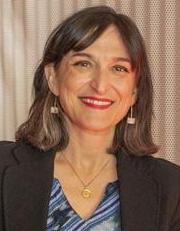
Maria Paz Moreno
Professor of Spanish, A&S Romance & Arabic Languages & Literat
5263 CLIFTCT
As a poet, she has published ten books of poetry and has been included in several anthologies, among them Poetisas Españolas 1976-2001 (Ed. Torremozas, 2003), El poder del cuerpo (Ed. Castalia, 2009), and Nueva poesía alicantina (2000-2005) (IGA, 2016). Her anthology From the Other Shore/ De la otra orilla was published in 2018 by Valparaíso Editors. Her most recent books include Amiga del monstruo (Ed. Renacimiento, 2020) and the bilingual edition of The Belly of an Iguana/ El vientre de las iguanas (Valparaíso Eds., 2021), translated by Jennifer Rathbun.
Prof. Moreno is a recipient of the George Rieveschl Jr. Award for Creative and/or Scholarly Works (2019), and the Distinguished Research Professor Award (2023).
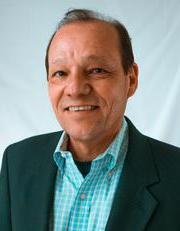
Nicasio Urbina
Professor of Latin American Literature., A&S Rom L&L Emeriti
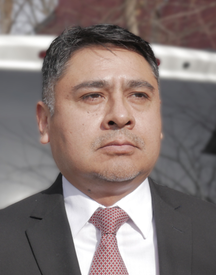
Noe T Alvarez
Assoc Professor, A&S Chemistry
418T Rieveschl Hall
Noe Alvarez is an Associate Professor in the Department of Chemistry. He received his Ph. D. in Chemistry from Rice University (2010), where he worked at the Richard Smalley Institute for Nanoscale Science and Technology under supervision of James M. Tour and Robert H. Hauge on multiple aspects of single-walled CNTs. He earned M.Sc. from McNeese State University (2004), and B.Sc. in Industrial Engineering at the Universidad Mayor de San Simon (Bolivia). After graduating from Rice he spent 6 months working on nanotube synthesis at the National Institute of Advanced Industrial Science and Technology (AIST – Japan). He has received a NASA tech award (2011) for his contribution to the development of scientific and technical innovation.
More details about his research at UC can be found at: http://www.alvarezlab.com
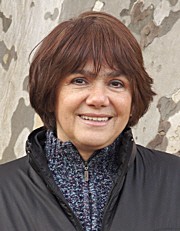
Noris Rodriguez
Educator Associate Professor, A&S Rom L&L Emeriti
My teaching style continuously evolves to improve my classes' immediate practical value, for the newer waves of students who are destined to engage with increasingly multilingual societies.
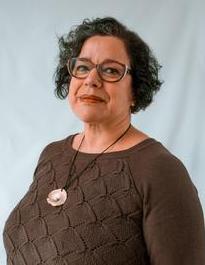
Nuria Rocio Lopez-Ortega
Educator Associate Professor, A&S Romance & Arabic Languages & Literat
5271 CLIFTCT
Academic-related activities: writing collaborator and consultant for major foreign language publishing companies; dual-enrollment Spanish program mentor with local high schools; Spanish AP reader.
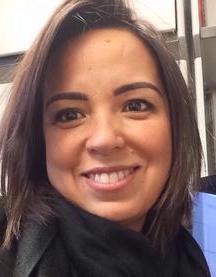
Paula L. Silva
Dr., A&S Psychology
3212 CLIFTCT
I study human performance, both functional and dysfunctional, from the perspectives of complexity science and ecological psychology. My research primarily focuses on (a) the action strategies that individuals of different ages, with and without pathological conditions, employ when performing a variety of tasks, and (b) the perceptual capabilities that supports adaptability of action strategies to particular circumstances. I have three complimentary aims. The first is to examine and advance general theoretical principles to explain the coordination and perceptual regulation of biological movement that support successful performance in diverse circumstances. The second is to reveal and explain changes in action coordination and perceptual capabilities associated with pathological conditions. The third is to apply these principles in the design of methods to assess and enhance resilience of individuals with movement-related disability and those at risk for sports injury. My overarching goal is to promote effective cross-fertilization between theory and clinical practice in the fields of rehabilitation and sports medicine.
Complete list of Journal Publications:
https://scholar.google.com/citations?hl=en&view_op=list_works&gmla=AJsN-F4CL3SrNy-iuSs5Alrk3OIvDRJyO6g0425q3xOwib09l8oZuCyFj6trqtE2ih84Yr_PXU2qhJk6m_AzKfgdeaAI7dnnZMnAKj4tMbYyrhHmA_RAoRU&user=z9FExgcAAAAJ
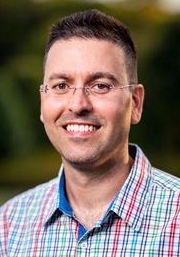
Quintino Rodrigues Mano
Associate Professor, A&S Psychology
3253 CLIFTCT
Lab website
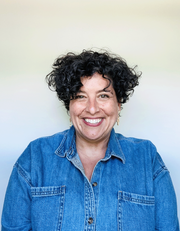
Stephanie N Sadre-Orafai
Taft Research Center Director & Faculty Chair
Critical Visions Co-Director,
A&S Anthropology
1100C EDWARDS 1 Edwards Center
Her essays on casting, model development, and fashion reality television have appeared in several edited volumes (PDFs). She is currently working on her first book, tentatively titled Real People, Real Models: Casting Race and Fashion in 21st Century America, which examines the history of casting in the New York fashion industry, the rise of non-professional or "real people" models, and how modeling and casting agents produce models' bodies as forms of media, creating new articulations of mediation, visibility, and difference in the process. Building on four years of ethnographic fieldwork in the New York fashion industry, the book explores the political implications of how these new articulations are refracted through idioms of beauty, desirability, and justice.
She is also working on a comparative project, Type by Design, that explores the overlapping concerns of inanimate (typefaces) and animate (models) type production in the commercial font and high fashion modeling industries in New York City. In both sites, there are tensions between visibility and invisibility, legibility and aesthetic nuance, and the management of lay and expert visions in producing culturally recognizable types and individual faces. Joining together ethnographic and archival research, she examines the mutually vivifying and dehumanizing dimensions of type production and what their professional practices can reveal about underlying changes in cultural ideas of “difference” and how they are visually encoded across time, technologies, and markets. This project extends her earlier comparative work on fashion and policing, where she examined the temporal dimensions of mug shots alongside casting photographs, and the spatial dimensions of street scouting and stop-and-frisk practices.
She co-directs the Critical Visions Certificate, a joint effort between faculty in the College of Design, Architecture, Art, and Planning and College of Arts and Sciences, which she established with Jordan Tate in 2011. The program is aimed at teaching students how to effectively combine critical theory and social analysis with art, media, and design practice. She co-edits CVSN, the experimental publication of student work from the program. Themes have included "space" (2013), "the future" (2015), "color" (2016), "surface" (2018), "identity" (2020), "land/water" (2022), "subject/object" (2023), and "artifact" (2024).
User not found User not found
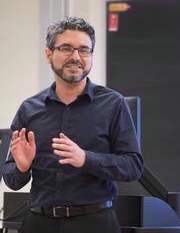
J. Mauricio Espinoza
Assistant Professor of Spanish and Latin American Literature/Cultural Studies , A&S Romance & Arabic Languages & Literat
5260 CLIFTCT
In addition to research, I write original poetry and translate the work of Central American poets (particularly the twentieth-century Costa Rican poet Eunice Odio).
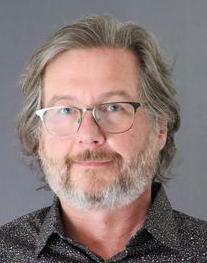
Tony P Chemero
University Distinguished Research Professor of Philosophy and Psychology , A&S Philosophy
5255 CLIFTCT
Currently, Tony is University Distinguished Research Professor of Philosophy and Psychology at the University of Cincinnati (UC), and a primary member of both the Center for Cognition, Action, and Perception and the Strange Tools Research Lab. His research is both philosophical and empirical; typically, it tries to be both at the same time. He focuses on questions related to nonlinear dynamical modeling, ecological psychology, complex systems, phenomenology, and social cognition. He is the author of more than 100 articles and the books Radical Embodied Cognitive Science (2009, MIT Press) and, with Stephan Käufer, Phenomenology (2015, Polity Press; second edition, 2021). He is currently writing a book tentatively titled Intertwinings: The embodied cognitive science of self and other (Columbia University Press). His first book was a finalist for the Lakatos Prize for Philosophy of Science. He has recently received the University Distinguished Research Award, the Latino Faculty Association Excellence in Research Award , and the Rieveschl Award for Scholarly Achievement at UC.
For more information, see Tony's pages at academia.edu or google scholar
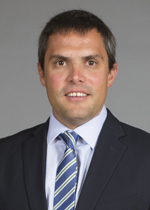
Hernan Moscoso Boedo
Assoc Professor, LCB Economics
LINDHALL
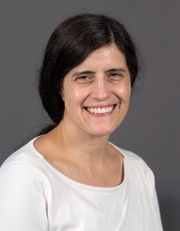
C. Catherine Losada
Professor of Music Theory, CCM Music Theory
4225L Emery Hall
Losada is the recipient of a Fulbright Specialist Grant, the Outstanding Publication Award from the Society for Music Theory, a Third Century Faculty Research Grant, a Publications Subventions Grant from the Society for Music Theory, a Paul Sacher Foundation Grant, a University Research Council Grant, and a University Research Council Faculty Summer Fellowship for research conducted at the Sacher Foundation in Basel, Switzerland. She delivered a keynote address at the 9th International Conference on Arts and Humanities (Queretaro, Mexico, 2019), as well as papers at international events including a special symposium, "Concepts of Harmony in Musical Composition 1945-1975" (Venice, 2019), "An International Symposium and Workshop Series in Music Theory at the China University" (Beijing, 2018), EuroMAC (Strasbourg, France, 2017), IMS (the conference of the International Musicological Society, Stavanger, Norway, 2016), KeeleMac (the conference of the Society for Music Analysis, Keele, UK, 2015), the McGill Workshop on Italian Serialism of the 1950s (Montreal, 2010), the First International Conference of the Society for Mathematics and Computation in Music (Berlin, 2007), and the Fourth Biennial International Conference on Twentieth-Century Music (University of Sussex, 2005). She has also presented her research at the annual meetings of the Society for Music Theory (Seattle, 2004; Cambridge, 2005; Los Angeles, 2006; Minneapolis, 2011; New Orleans, 2012; Charlotte, 2013; Milwaukee, 2014; Vancouver 2016), the American Musicological Society (2019), as well as many regional conferences.
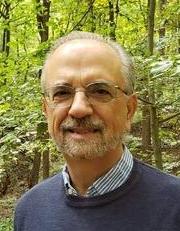
Miguel A. Roig-Francoli
Distinguished Teaching Professor of Music Theory and Composition, CCM Music Theory
4225J Emery Hall
Roig-Francolí’s compositions have been widely performed in Spain, England, Germany, France, Italy, Switzerland, Greece, Brazil, Colombia, Mexico, Canada, and the U.S., including a 2013 monographic chamber concert at Weill Hall (Carnegie Hall), and he has held commissions from the National Orchestra and Chorus of Spain, Spanish National Radio, Fundación Juan March, Rawlins Piano Trio, Institut Ramon Llull, and the Foundation for Iberian Music (CUNY). His compositions are published by EMEC, Piles, Fundación Juan March (Madrid), and Perennis Music Publishing. Among his many honors are first prize at the National Composition Competition of the Spanish Jeunesses Musicales (1981) and second prize at the UNESCO International Rostrum of Composers (Paris, 1982), both for Five Pieces for Orchestra; the Dean’s Dissertation Prize, Indiana University (1991); the Dana Research Fellow Award, Ithaca College (1992); grants from the US-Spain Joint Committee for Cultural and Educational Affairs, Spanish Ministry of Culture, Ithaca College, Northern Illinois University, and the University of Cincinnati; the Medal of Honor from the Superior Conservatory of Music of the Balearic Islands (2004); the University of Cincinnati’s A.B. "Dolly" Cohen Award for Excellence in Teaching (2007) and George Rieveschl Jr. Award for Creative and/or Scholarly Work (2009); 2010 Ramón Llull Prize of the Government of the Balearic Islands (Spain); the 2013 Distinguished Teaching Professor Award from the University of Cincinnati; and the 2016 American Prize in Composition (band/wind ensemble division).
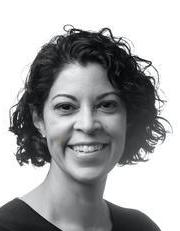
Flavia Bastos
Professor, DAAP School of Art
4280D DAA Addition
User not found User not found
User not found User not found
User not found User not found
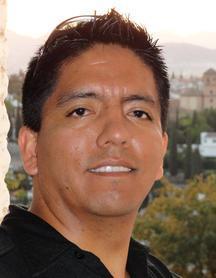
Angel Añorga
Assoc Professor, UCBA Language & Cultural Studies
M275G BA MUNTZ
Teaching at heart...
"If you talk to a man in a language he understands, that goes to his head. If you talk to him in his language, that goes to his heart." Nelson Mandela
Throughout my years of experience as an educator, particularly as an applied linguist, I have discovered that one of the critical components in this field (and other fields by replication) is to assist students in impacting and empowering their world with new knowledge acquired in the physical or virtual classroom. When students contextualize what they learned, they relate the purpose of learning to their needs, goals, personal interests, and immediate surroundings. Nothing is more challenging and dull but an education that distances from the unique world of each student. Thus, my pedagogical craft evolves as student needs and contexts change; it is easier to teach when I hear what they (students) have to say about the subject, and my pedagogy - remarkably, when they (students) talk about themselves and who they are. Indeed, they enhance my classroom, but more importantly, they enrich me as a person, first and then as someone who facilitates education. With this in mind, I start class every day excited to evolve and expectant to see them grow and succeed. Ultimately, we all grow together. Teaching at heart is to guide them to fly away beyond the subject, beyond the biases and stereotypes, beyond the status quo and its limiting factor. Teaching "is believing" or "having faith" that they will get where they want to be.
Research at heart...
"If we knew what we were doing, it would not be called research, would it?." Albert Einstein
Research at heart is to find answers to the question, "who am I?" That is the starting point, at least. Once we know the minimum about ourselves, we bring who we are and where we come from into the research field. That is when research starts to make sense, at least for the time a spark lasts.
My interest in second language pronunciation began during my undergraduate studies in Peru, in the English Phonology class with Dr. Yony Cardenas Cornelio (an extraordinary, inspirational educator and linguist at San Marcos University). Fascinatingly, humans learn to articulate sounds way before they start writing. My experiences learning English as a new language in the sixth grade and throughout the years have inspired me to tie up subject-specific and classroom research to enhance my teaching craft and inspire and empower students. When students (and speakers in general) feel confident with their pronunciation, they may speak more using the target language. I am interested in developing innovative pronunciation techniques by emphasizing a Cognitive Phonology framework that focuses on a usage-based approach. As an applied phonetician, I allow students to dedicate time to developing an awareness of their pronunciation and to reflect on their improvements and challenges. Additionally, I provide personalized feedback to improve pronunciation in the target language. Mainly, I focus on implementing CALL (Computer Assisted Language Learning, including AI assistance) to enhance second language pronunciation.
For years, I have consistently situated my research practice over qualitative inquiry, particularly implementing case studies and phenomenological approaches. I have also transitioned into Action Research with an emphasis on Autoethnography. Currently, I have started polishing my quantitative skills with the end goal of utilizing Mixed Methods. I am particularly interested in how to integrate accurately qualitative and quantitative data. I implement statistical measures and software such as SPSS and RStudio to attain this end.
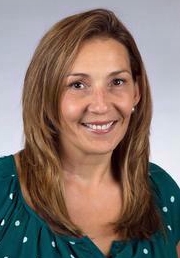
Liliana Rojas Guyler
Associate Professor
Health Promotion And Education,
CECH Human Services
460B Teachers College
Dr. Rojas-Guyler has published and presented widely on minority health issues, particularly those relating to Latina health. Her research agenda includes determinants of health among vulnerable populations (e.g. people who have disabilities and immigrants), health behaviors, the influence of culture, and professional preparation needs of future health educators to address cultural appropriateness in health program planning. Her most recent research includes: a) assessing the health status changes over the last decade of Latinos in the Greater Cincinnati Area, b) assessing Disability Awareness and Self-Efficacy of Health Education students, and c) assessing the connection of Social Media Use, Body Image, Cultural Identity, and Exercise Patterns among African American and Latinos among other projects. Dr. Rojas-Guyler has published in Health Behavior, Health Promotion Practice, The Health Educator, the American Journal of Health Education, the Journal of Health Care for the Poor and Underserved, Family and Community Health, and the Journal of Religion and Health among others. Dr. Rojas-Guyler is dedicated to inclusion of students in collaborative research teams. She is experienced in qualitative and quantitative evaluation and research, and is knowledgeable and proficient conducting program evaluation and continuous improvement.
Dr. Rojas-Guyler is an active professional in her field. She serves as a reviewer for several professional journals and is a member of the editorial board for The Health Educator. She has worked at the national level with Eta Sigma Gamma, the national honorary for her profession, the Society for Public Health Education, and has held membership with several other organizations including the APHA, SOPHE & ESG among others. She has served the community and is currently a member of Interact for Health’s Community Involvement Committee and a research consultant for the Latino Community Health Status Survey (IH).
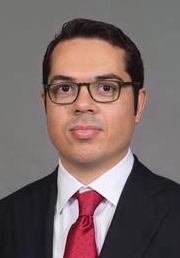
Michael Odio
Associate Professor
Sport Administration,
CECH Human Services
436L Teachers College
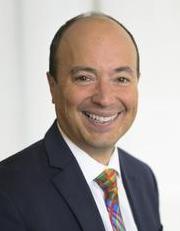
Alberto J. Espay
Division Director, Research Endowed Chair; James J. and Joan A. Gardner Family Center for Parkinson's Disease and Movement Disorders, COM Neurology and Rehabilitation
2216 One Stetson Square
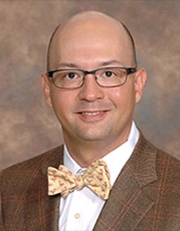
Alessandro de Alarcón
Director, Center for Pediatric Voice Disorders; Medical Director, Complex Airway Unit, COM Otolaryngology-Head & Neck Surgery
315 Childrens Hospital Bldg R
Javier Gonzalez-Del-Rey
Professor of Clinical-Affiliate, COM Pediatrics Emergency Medicine
Childrens Hospital Bldg R
User not found User not found
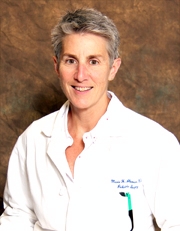
User not found User not found
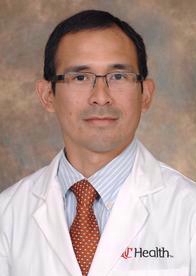
Moises A. Huaman
Associate Professor of Clinical, COM IM Infectious Diseases Division
3112 UCMC-HOLMES
User not found User not found
User not found User not found
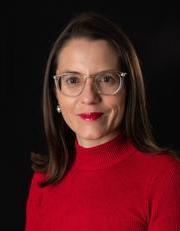
Ana Hincapie
Associate Professor, Pharmacy Hincapie Research
361 Kowalewski Hall
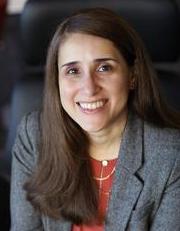
María I Ortiz Ph.D.
Executive Director, Acad Aff Faculty Enrichment Center
545P Langsam Library
She is the Executive Director of the UC Faculty Enrichment Center (2023) and a Spanish Language Specialist and Educator. She taught Spanish at UC Blue Ash College, and was Co-Director of the Learning and Teaching Center. Inducted to the University’s Academy of Fellows in Teaching & Learning (AFTL) in 2021. Dr. Ortiz was recognized with the 2020 University of Cincinnati's Mrs. A.B. Dolly Cohen Award for Excellence in Teaching and the Excellence in Teaching Awardee for the 33rd Annual Celebration of Teaching 2020 of The Greater Cincinnati Collegiate Connection Consortium (GC3). Dr. Ortiz received the 2017 UCBA Innovative Teaching Award for implementation of the integration of mindfulness practices and technology for teaching Spanish language.
In 2017, Dr. Ortiz led efforts to assist Puerto Rican college students with online courses after Hurricane Maria devastated the island. She worked with the University of Cincinnati's Provost Office and with colleagues nationwide to recruit and develop Sagrado Online Collaborative, a network of Spanish-speaking professors who remotely taught students through the Universidad del Sagrado Corazón in Puerto Rico. Dr. Ortiz shared her love for literature by teaching during the summer of 2019, as part of the expert faculty exchange at Xi’an International Studies University in Xi'an, China. Her research and publications include cultural studies perspective(s) and literary theory to analyze interactions between food, gastronomy, identity, Thirdspace, gender, performance and post colonial studies, as well as pedagogical strategies and activities for active learning classrooms.
In 2024, she was recognized as a Changemaker by the Girls Scouts of Western Ohio for her comittment to education, diversity, equity, and inclusion programs and practices, providing acknowledgement and support for the intersectional needs of underrepresented groups and volunteered for the Alzheimer’s Association.
David G.C. Madrid
Assoc Professor, CC Foreign Language
CC West Woods Acad Cntr